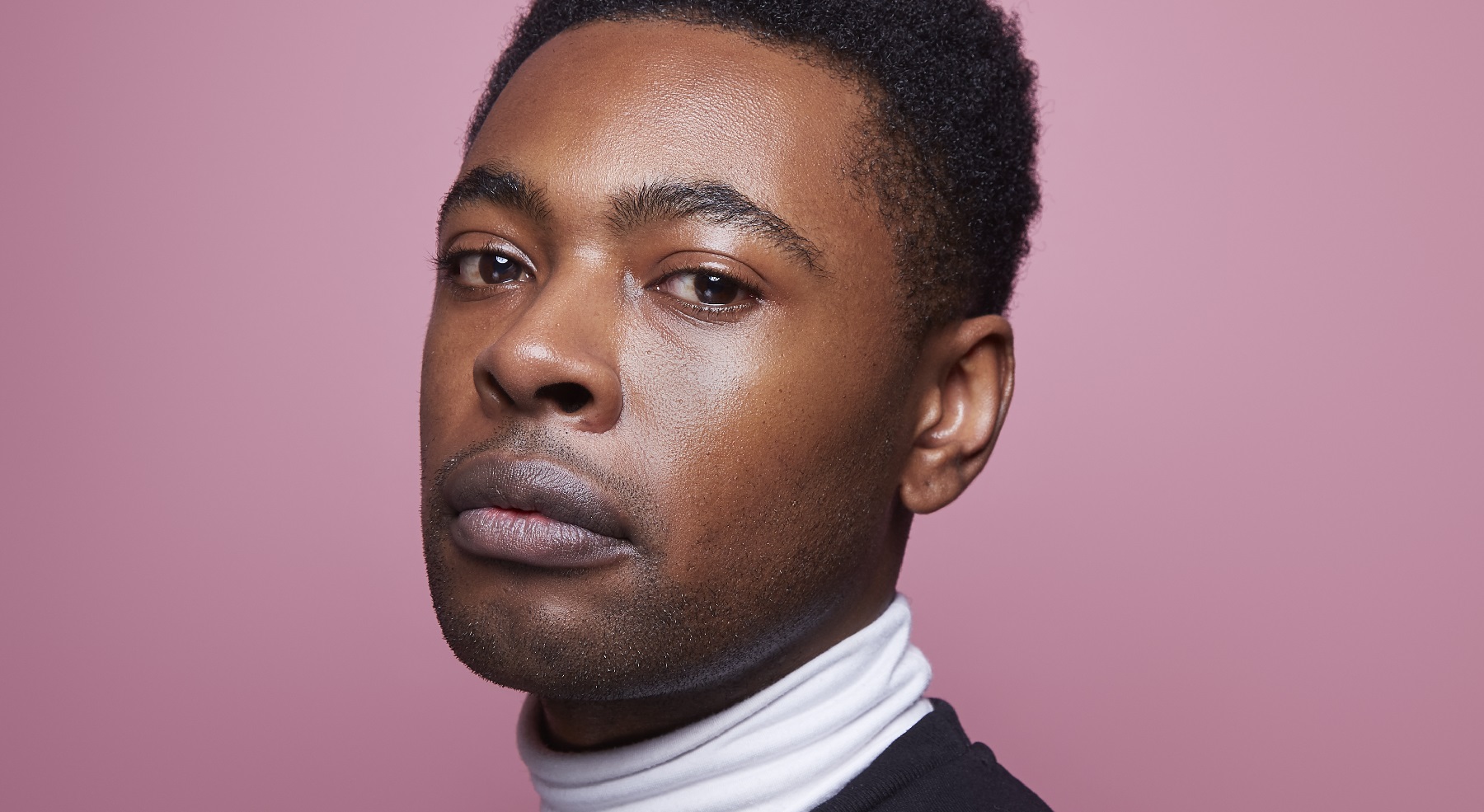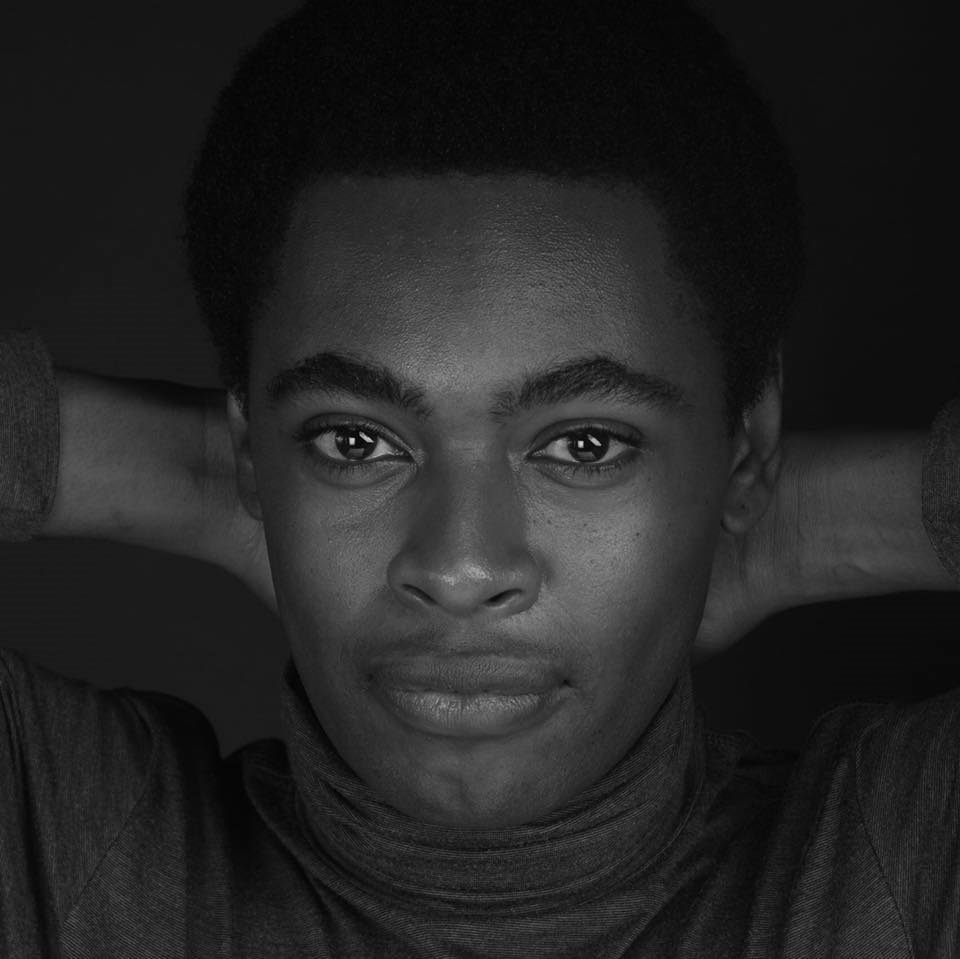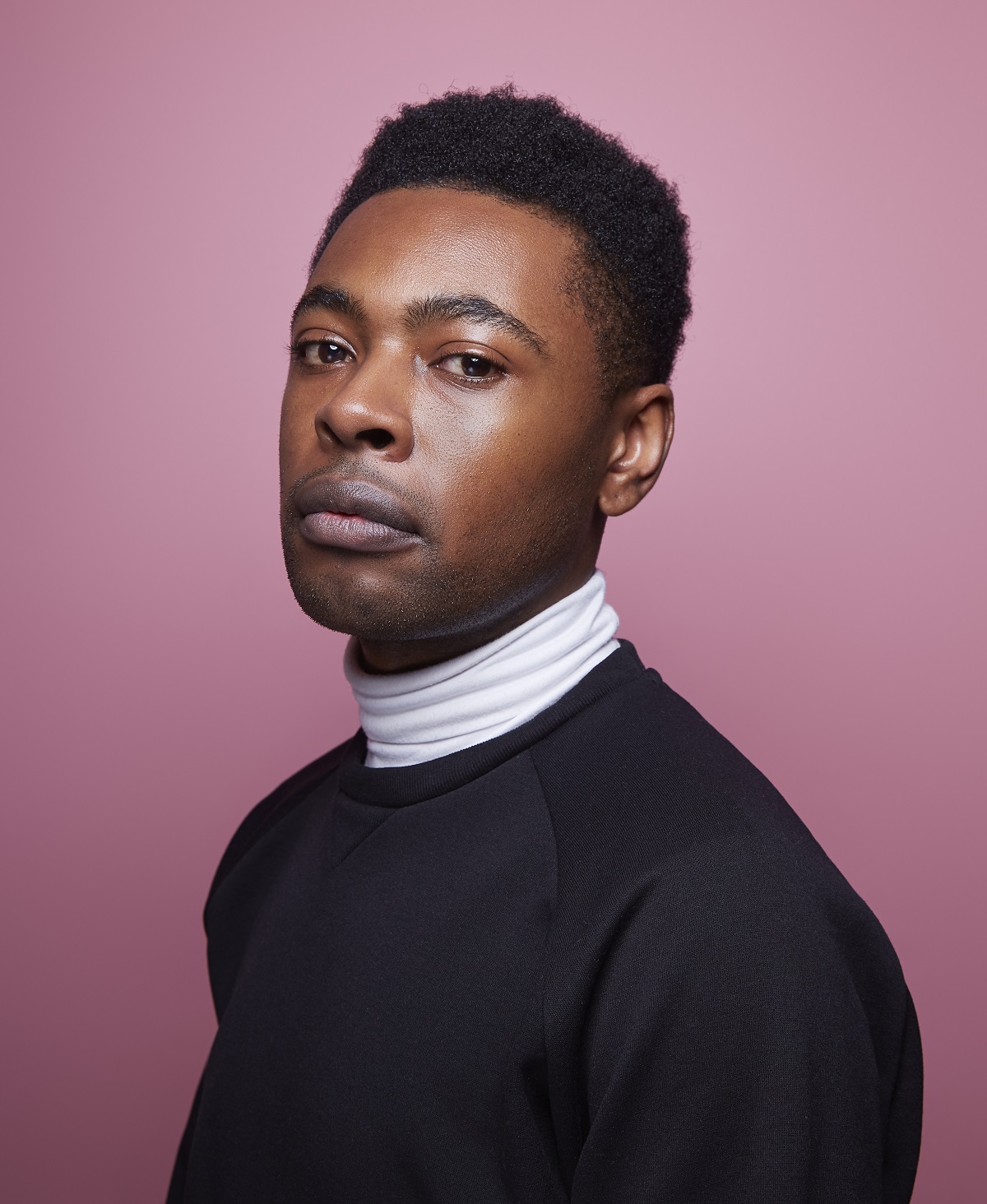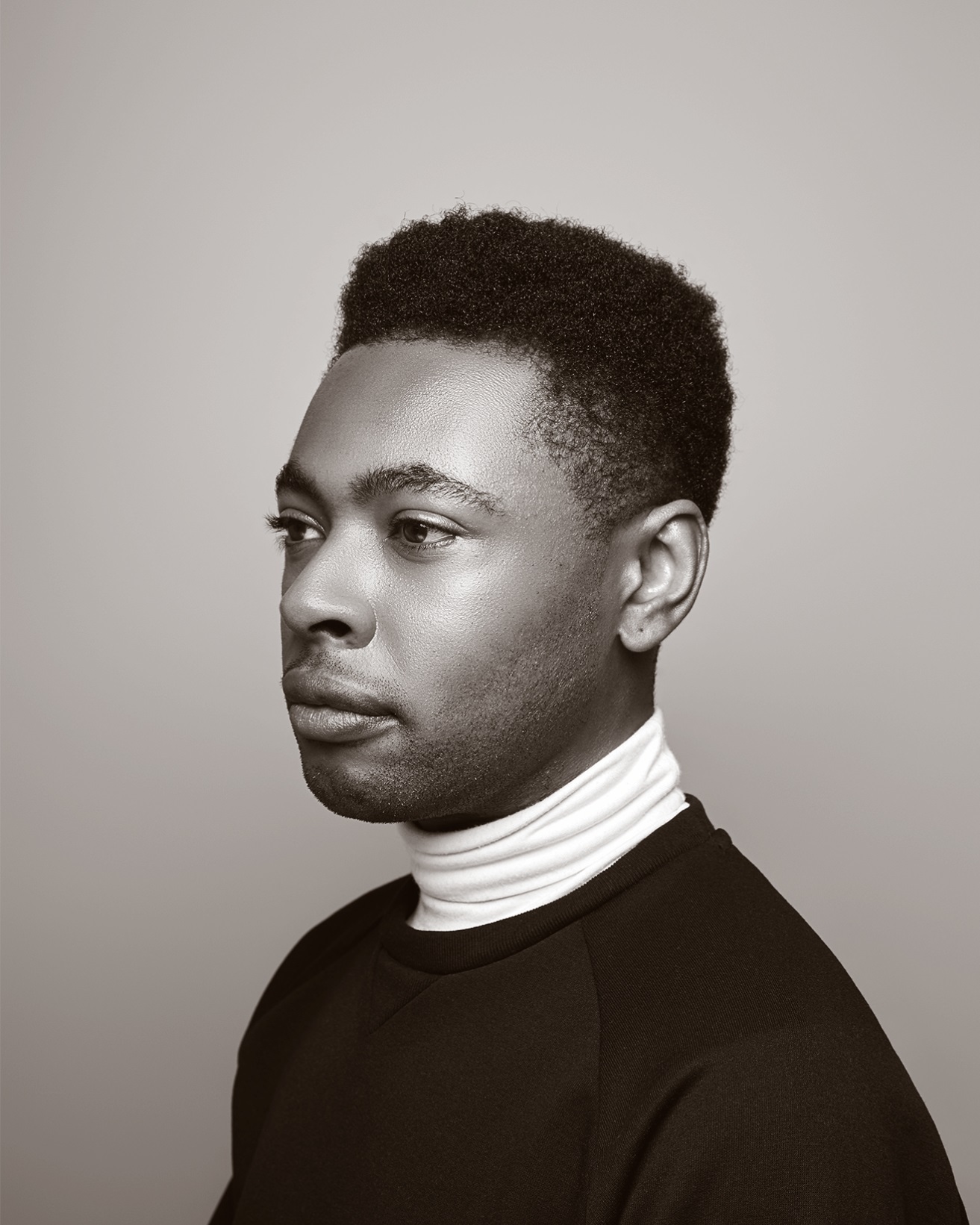‘Growing up in white Britain, I considered myself to have transcended my Blackness. I was wrong’
Author Paul Mendez reflects on the slow road to understanding his Black identity growing up in a white, working-class part of England.
By Will Stroude

Words: Paul Mendez
I’ve started telling a story in public about something I’ve always been ashamed of. It happened when I was thirteen or fourteen, so probably Year 9, the year I chose my GCSE options. Let’s say 1995, autumn term. History class.
The teacher, a chain-smoking, weathered, unbothered woman we all imagined lived in a run-down cottage with a hundred cats, also taught us Physics. I was sitting next to my best school friend. We were looking at the Industrial Revolution, a very popular subject in the Black Country because of its relevance to local history, in that it acknowledged the skilled labour of my peers’ forefathers in ways other subjects could not. The teacher patrolled the room as we wrote our answers to a question she posed at the outset, but came to an abrupt stop at the edge of my desk.
She said, ‘Paul Mendez. Why do you have a swastika Tippex-ed on your pencil case…?’
What I realise now is that I was being subjected to the same colonial education as my Windrush generation Jamaican grandparents, who learned, at school, about Shakespeare, Dickens and Elizabeth I; about Britain’s naval might, and how it civilised much of the world. At junior school, I coloured in the dresses of Henry VIII’s six wives. I was not empowered to learn about anything that would prepare me for life as a Black child growing up in a neo-fascist locale.
My peers were just as ignorant of the transatlantic slave trade, the legacy of nineteenth- and twentieth-century eugenics and the history of racial politics in the British Empire as I was, and yet, because of my skin colour, they saw me as lower in the hierarchy than them, despite our equal deprivation, and so subjected me to racial abuse, verbal and physical. In imitating them, by Tippex-ing a swastika onto my pencil case, I was ignorantly appropriating Fascist symbolism in order to fit in, because they believed that they were white, and I believed their history was my history.

Author Paul Mendez released his debut novel, Rainbow Milk, last year (Photography: Chris Holka)
At junior school I was Head Boy, despite being one of only two Black boys in my year. I was simply the best student – always winning the house point tables, on my House’s team for every school quiz, champion of every spelling, maths and reading test (and sprinting race, though I was terrible at football and cricket). I was a bright, polite, well-spoken, handsome, beautiful child.
Please note. Modesty is for rich people who’ve had everything handed to them. My grandmother tried to prepare me for life by giving me the talk: ‘You might be better than the others,’ she told me, when I was ten, apropos of future career chances, ‘but the employer will see your Black face and soon give the job to the white man.’
She told me that I would have to work twice as hard as the white kids to achieve parity, and she was only talking about my school friends, the working-class sons and daughters of dinner ladies, factory workers and carpet fitters, not the privileged middle-class kids I would later compete against, living and working in London.
To repeat, I was a bright, polite, well-spoken, handsome, beautiful child. So I didn’t deserve to be sent to the worst-performing secondary school in the entire region, but as four other children from my Jehovah’s Witness congregation were being sent there – including the youngest son of the upstanding family who lived right next door to it – my mother decided I must go where ‘the other Witness kids can keep you on the straight and narrow.’
My primary school had been one of the best in the area, so the early days of secondary school life were a terrible shock. My time as Head Boy showed that it could be normal for a gifted Black child to rise to the top of his class under the right care, but that meant nothing in a place where most kids seemed to see it as their right to refuse a free education.
Where my three junior peers had for the most part been well-behaved and keen to learn, suddenly, after the six weeks’ holidays, I found myself in the same year as girls who wore make-up, smoked fags and boasted about their eighteen year-old boyfriends, and boys who looked like grown men and who I feared might knock my head off as soon as look at me. I had been called a nigger before, but here it hit me like a lumpy wad of phlegm in the eye.

I was an eleven-year-old, small Black boy growing up in the white working-class ward of Sandwell, then a right wing British National Party (BNP) stronghold; I didn’t realise it at the time, because I knew nothing about politics – Witnesses are apolitical, and I distinguished people merely by whether they were Witnesses or not. Harlem, Brixton, Handsworth it wasn’t. Whiteness was almost all we knew, and what we would ingratiate ourselves with.
My parents, who’d lived in the same sorts of areas all their lives, and perhaps found the racist abuse they suffered character-building, did not understand my needs, and sowed in me a mistrust of other Black people, particularly Black men, as if I wouldn’t grow up to be one myself.
Looking back over my adult life, perhaps the most difficult time I had was in my early thirties – the years 2012-15. I became aware – for the first time gaining an understanding of intersectionality as a way to explore my own plural, overlapping identifications – that I was a Black man; that non-Black people saw me not as Paul Mendez, the individual, but as a Black man, based on an idea of Black masculinity structured by a supermassive juggernaut – white supremacy – which I’d previously thought was the preserve of actual Nazis but now began to realise dominated not just Western culture, but the entire wider world, and had done so, impregnably, for centuries.
At the same time, I feared that other Black men, particularly straight Black men, saw me as ‘whitified’ (a Bounty, or coconut, or Oreo) and effeminate (a battyman). Of course, I could see, in a mirror, that I had mid-brown skin, neither light nor dark, and I loved ‘my Negro nose and Jackson 5 nostrils’, as Beyoncé put it in her 2016 single Formation – the first time, for many of her fans, that she had ever been so explicit about her own Black pride.
But before I saw myself as Black – I saw myself as British; English, even. I did not believe that the troubles so frequently ascribed by the white-owned media to Black masculinity applied to me, because I saw myself as acceptable to white people and not the ‘typical’ Black male (I’m afraid to think what the stereotypical Black male looked like in my own blindsided Black male mind). I knew a lot of white people, lived and worked with white people, and assumed easy acceptance within white social circles, and was happy to be the token Black, to show off, sing, dance and ‘coon’. So, I considered myself to have transcended my Blackness, the way a white woman might overcome the perceived limitations of her gender to rise to prominence within a male-dominated profession.
After the acquittal of Trayvon Martin’s murderer triggered the Black Lives Matter movement in 2013, I realised, crushingly, and at the age of 31, that it was virtually impossible to live in the West and not be somehow complicit in white supremacy (and where outside the West could I escape to, given hostilities to queer and trans people seem to be so widespread?).

Photography: Chris Holka
Social media was what made the difference, because it meant Black people – seriously well-educated Black people who had written whole libraries on Black history and Black subjectivity – finally had a voice that was our own, that wasn’t channelled through a publication it was too easy in the mainstream media to dismiss as niche, or that was filtered for the immediate needs of an immediately white audience.
I situated myself, for the first time, within a history of race relations that is currently alive within me – a situation which breaks down completely in Jamaica before 1841, when the plantation ruling class was first required by British law to record the names of the emancipated, apprenticing former slaves; before that, one’s identity is reduced to something less than human. Couples with unrecorded Christian names were bred for the best slave stock, absorbing the blood of countless ethnicities, often by force; the Caribbean is genetically cosmopolitan, with pre-Columbian, Chinese, Indian and European, as well as African, inheritance (and I was once told by an aunt, though this has not yet been verified by means of a test, that I have Spanish, Scottish and Russian-Jewish ancestry). But I am Black. The fact that my history – as distinct from the way we in the West are taught to understand history – is unfathomable, caused me great terror and anguish. And the worst part of it was that I realised I was trapped in it, primarily because my education up to that point had completely effaced the ‘myth’ of its existence. In my mind, equality could only happen with a reversal of time and a replaying of the last 500 years under non-imperial conditions – impossible!
Also in 2013, Steve McQueen’s Oscar-winning film, 12 Years a Slave, was released, opening my eyes to the horrors of transatlantic slavery. That year, I read Andrea Levy’s Small Island, which unveiled the culture of my grandparents’ generation to me and many others for the first time. Since then, I’ve become a voracious reader of writing from the Black diaspora, and I’m currently doing an MA in Black British Writing because I want to learn as much as I can about the world, and its past, through voices that share something of my experience.
Even as a bright, keen-to-learn child, I did not know, or did not know that I should find out, what my heritage was: that Jamaica was a plantation colony pumping out its own blood to feed the Mother Country, and that our forefathers lived somewhere in Africa, which we only associated with the Black people we saw as beneath us, pitiable and near death, with flies buzzing around them, starving, on TV. We believed, as a family – though we too were hungry – that we were superior, because we lived among white people and were Jehovah’s Witnesses. We did not identify ourselves as Black – notwithstanding the cheeky tint of style West Indians brought to British life with our food, fashion and music – because Blackness itself was unfathomable, due to our ignorance, and to what history had taught us to think about ourselves. We were white people – socialised within a BNP stronghold, regardless of our professed apolitical stance – who just so happened to have Black faces. But to the rest of that world, we were merely Black.
‘Why do you have a swastika Tippexed on your pencil case…?’
‘I don’t know, Miss.’
She stood at the corner of my table, contrapposto, with her arms folded, her expression incredulous.
‘What do you mean, you don’t know?’
‘Everybody else has got one, Miss.’
‘Do you not know what it is?’
‘It’s just a symbol, like a logo, in’t it?’
She rolled her eyes.
‘Scratch it off,’ she said, tapping a yellowed fingernail on it before continuing her rounds.
Quite a few members of my class had all sorts of graffiti Tippex-ed on their pencil cases, from the West Bromwich Albion FC crest to caricatures of a Ford Escort RS Cosworth with its double rear spoiler. I always loved the look of alloy wheels, like the four-hole cloverleaf style of the mid-80s Ford Escort XR3i, referred to over a decade later on the Alfa Romeo 156 and GTV. I honestly thought the interlocking design of the swastika was something like that. I could imagine it on the XR3i. I’d never even heard of the word ‘swastika’ and was completely ignorant of what it symbolised. Nazism and the Holocaust were not on our curriculum, and when it came to choosing my options, I chose Geography over History, so do not know whether it was covered on the GCSE syllabus.

Photography: Chris Holka
When I saw the swastika painted, in white, on the brightly coloured, translucent plastic pencil cases of my classmates, I did not think of them (my classmates) as particularly racist. They might have told me to go back to the jungle, and called me a nigger and a black bastard, but I didn’t get called a slag, a slut, a slapper or a bitch like the girls did; racist language took on the same level of playground ribbing all non-insider-males received based on their gender, hair colour, religion, weight or physical ability.
The white boys who were good at football – including the youngest son of the upstanding Witness family who lived right next door to the school – might have chased after me and put hands on me, for a while, but I soon realised I could entertain them, and make them laugh, at the expense of my school-work. The thought of me, Black, but better than them, and qualified for the jobs they were too gormless for, was unbearable to them.
I didn’t do badly in my GCSEs, but that didn’t stop my erstwhile Maths teacher (who had something of the eccentric artist about her) shouting over heads in the corridor on results day: ‘Paul Mendez! If you’d have kept your head down, you’d be leaving here with ten A-stars!’
Yes, I said to myself, but you don’t know what I’ve had to contend with.
Paul Mendez is a London-based Black British novelist, essayist and screenwriter.
A recording of this essay will appear on WritersMosaic.org.uk – a new online platform from The Royal Literary Fund showcasing original writing from Paul Mendez and a wide range of other literary voices and cultures from across the UK.
